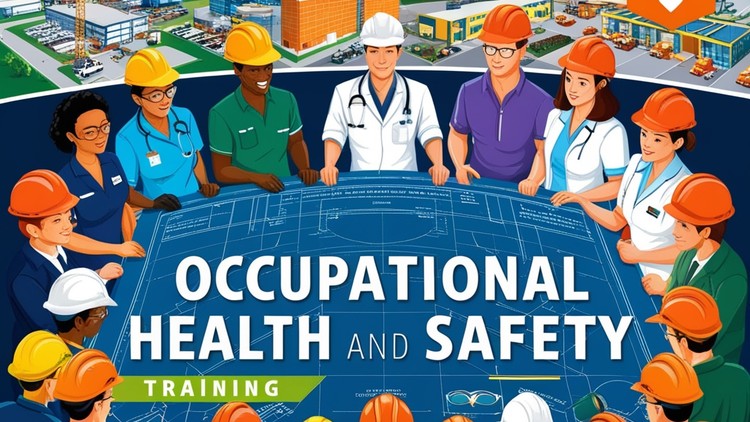
Occupational Health and Safety
What you will learn
Core Health and Safety Principles
Risk Assessment and Management
Accident Investigation and Reporting
Emergency Preparedness and Response
Occupational Health
Ergonomics
Environmental Health and Safety
Safety Management Systems
Leadership in Health and Safety
Communication and Stakeholder Engagement
Performance Management and Auditing
Change Management
Case Studies
Practical Exercises
Project Work
Add-On Information:
Note➛ Make sure your 𝐔𝐝𝐞𝐦𝐲 cart has only this course you're going to enroll it now, Remove all other courses from the 𝐔𝐝𝐞𝐦𝐲 cart before Enrolling!
- Embark on a transformative journey into the foundational pillars of safeguarding workplaces and well-being.
- Gain a comprehensive understanding of the regulatory landscape and ethical considerations that govern OHS professionals.
- Develop the critical thinking skills necessary to identify, analyze, and mitigate potential hazards across diverse industries.
- Acquire the expertise to design and implement effective safety protocols that foster a proactive safety culture.
- Master the art of incident analysis, moving beyond simple reporting to uncover root causes and prevent recurrence.
- Become proficient in developing and executing robust emergency response plans to minimize impact during crises.
- Explore the crucial intersection of workplace design and human well-being, optimizing for comfort and productivity.
- Learn to integrate health surveillance and preventative measures to protect employees from occupational illnesses.
- Understand the principles of environmental stewardship within the context of industrial operations.
- Grasp the strategic importance of integrated safety management systems for sustainable organizational performance.
- Cultivate the leadership qualities essential for championing safety initiatives and influencing organizational change.
- Enhance your ability to build strong relationships and communicate effectively with all levels of stakeholders.
- Develop the proficiency to monitor and evaluate the effectiveness of safety programs through data-driven analysis.
- Navigate the complexities of implementing new safety procedures and adapting to evolving workplace environments.
- Engage with real-world scenarios through compelling case studies, applying theoretical knowledge to practical challenges.
- Participate in hands-on exercises designed to hone your practical OHS skills and problem-solving abilities.
- Undertake a culminating project to demonstrate your mastery of course concepts and your preparedness for professional practice.
- Develop a keen awareness of emerging trends and technologies shaping the future of occupational health and safety.
- Acquire the foundational knowledge to pursue further specialization and certification within the OHS field.
- Build a strong network with peers and industry professionals, fostering collaborative learning and future career opportunities.
- PROS:
- Provides a solid, broad foundation for entry into the OHS profession.
- Equips learners with practical, immediately applicable skills.
- Offers valuable insights into creating safer and healthier work environments.
- CONS:
- May require further specialization for advanced or niche OHS roles.
English
language